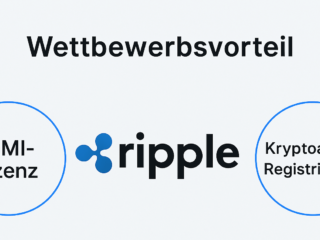New JPMorgan bond is based on BlackRock’s Bitcoin ETF until 2028: high payout expected

- JPMorgan has filed for a new structured note that will allow investors to bet on Bitcoin through BlackRock’s IBIT.
- The bond offers a guaranteed minimum return of 16%. More is possible if the ETF underperforms by 2026 but rises by 2028.
On Monday, JPMorgan Chase filed a new structured note with the US Securities and Exchange Commission (SEC) that allows investors to bet on the future performance of Bitcoin through Blackrock’s IBIT. Dem Application According to the report, the bond offers investors a guaranteed minimum return of 16% if the market price of BTC is below average by the end of 2026 and skyrockets by 2028.
If approved, JPMorgan described the potential gains as “unlimited” – if Bitcoin hits new all-time highs over the next four years.
Where’s the catch?
The structured notes contain several conditions. If the ETF’s price is at or above a set target by December 21, 2026, JPMorgan will automatically call the bonds and pay investors at least 16%. In this case, investors will receive 1.5 times their original investment with no cap if the ETF exceeds the price set by JPMorgan Chase for 2028.
While the gains are significant, they come at a price. The document warns that investors could suffer significant losses if the price of Bitcoin falls by 40% or more. Additionally, the document warns about the nature of Bitcoin, which includes sharp price fluctuations, noting:
“Bitcoin has historically exhibited high price volatility… and may continue to do so, which may increase the volatility of the Fund.”
A Bloomberg ETF analyst explained that JPMorgan is following a broad trend:
“It is quite common for banks to offer these types of bonds for just about any asset imaginable.”
Germany’s relationship with Bitcoin
Last month, the far rightThe AfD party submitted a motion in parliament calling on the government to recognize Bitcoin as a to recognize strategic national assets. This would mean that Germany no longer sees Bitcoin as a commodity within the meaning of EU rules.







No Comments